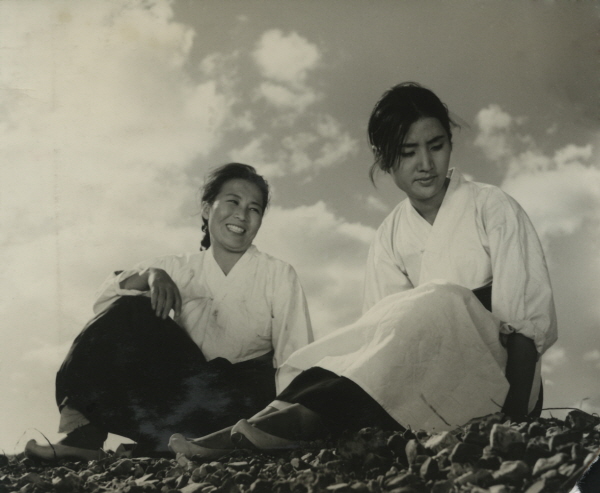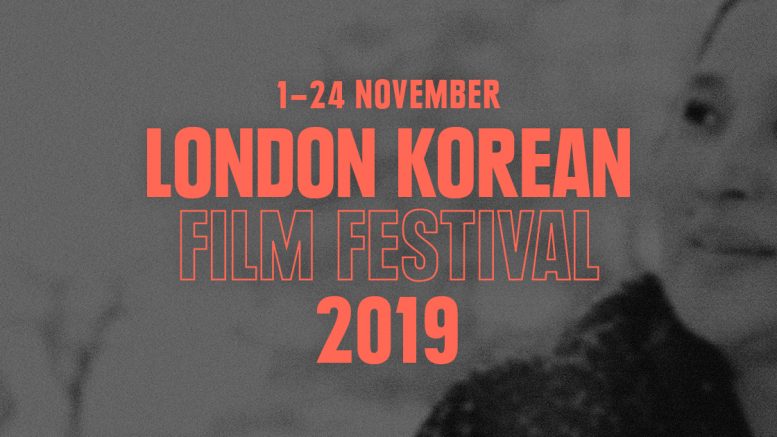The 14th London Korean Film Festival (LKFF) has come back to London with more elaborative programmes. The festival ends today, lastly screening ‘Scattered night’ by Lee Jihyoung and Kim Sol with a Q&A session at Regent Street Cinema. Marking its finale, the LKFF leaves afterglow in film-buffs’ hearts.
Since Parasite won the Palme d’Or, the top prize of the Cannes Film Festival, it has set a milestone in Korean Cinema’s history. “It is the 100th anniversary of cinema in South Korea this year. I think that Cannes has given Korean cinema a great gift.”, Director Bong added after the awards.
Owing to its success, the LKFF is to celebrate and embrace more variety of Korean film genres, showing in the London’s big picture-houses: Regent Street Cinema, Picturehouse Central, Close-up Film Centre, Phoenix Cinema, Rio Cinema, ICA, Barbican, British Museum, LUX, Birkbeck’s Institute of Moving Image and KCCK (Korean Cultural Centre UK).

A still cut from ‘The Seashore Village’ (1965). Credit to Witchfinder
As Director Bong said, LKFF called attention to the anniversary of a century-long history in Korean cinema by bringing in a retrospective title, The Seashore Village (1965), to mark its beginning. Followed by the opening gala, the classic pictures which highlight the timeline of the Korean cinema over the 100-years came behind.
The programmes are thematically designed as: Special focus: A Century of Korean Cinema, Cinema Now, Hidden Figures: Ha Gil-Jong, Women’s voices, Documentary, Animation, Artist Video and Mise-En-Scene Shorts. Each theme includes screenings, director Q&A and interviews, giving more shades to the festival.
Darcy Paquet, a film critic and the author of Parasite’s subtitles, has come to join the festival and to share a bit of behind-the-scenes story of Parasite with the UK audiences.
From art-house to the mainstream, Korean cinema has embedded its place as an up-and-coming genre into the global film market. “…the win was viewed as a very belated honour for South Korean film as a whole, which has long held a reputation for vibrancy and daring, but has never produced a Palme champ before,” said Guy Lodge, Observer film columnist.

A scene from Spike Lee’s remake of Oldboy (2013). Credit to Russ Fisher
“South Korea’s cinema boom continues to echo through Hollywood…Yet these Americanised versions often end up drained of the weirdness that made them so bracing. It’s like trying to make coleslaw out of kimchi.” As Steve Rose, a writer for The Guardian, said, the remakes of South Korean films in Hollywood are still under criticism.
What made this year’s festival distinctive is, – of course, it’s because of Parasite’s immense success – it explores from the very origin of the Korean cinema up to today, as a whole. “It’s good that we’re able to watch Korean films, that are like decades ago. It’s even difficult now to watch them in Korean picture-houses.” says, Johnny, 27, a volunteer of the LKFF, from Liverpool.
To encompass scattered fanbase across Britain, the LKFF will move on to Bristol, Nottingham, Manchester, Edinburgh, Glasgow and Belfast over a week, from 18 to 24 November.
The event is organised by KCCK with the support of the Korean Ministry of Culture, Sports & Tourism, the Korean Film Council and the Korean Film Archive.
To read more about LKFF:
Words: Kim Se Hee l Photo: LKFF, Witchfinder, AFP, Russ Fisher

